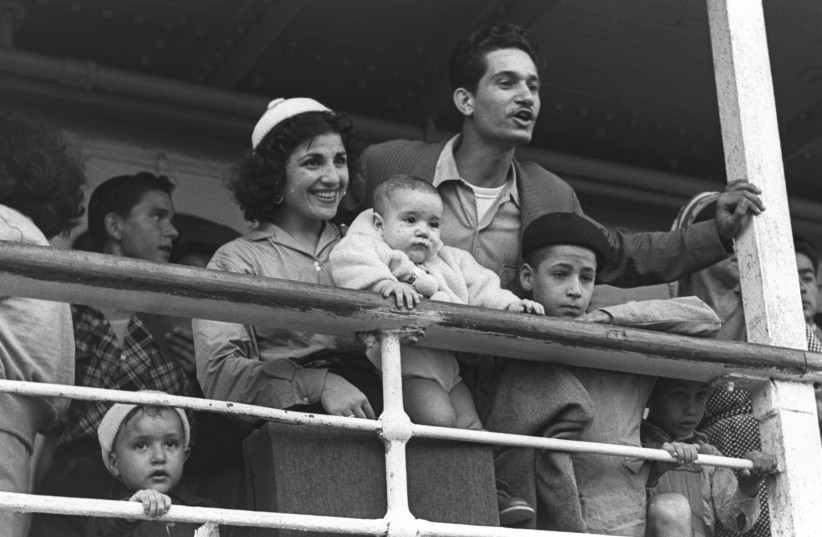I came to Israel for the first time as a wide-eyed 11-year-old in 1987. I had no idea what to expect. There was no Internet to see videos of Israel or helpful pictures that could have given me a sense of what Israel felt and smelled like. I remember that trip and how wonderful it was to experience Israel for the very first time.
I also remember that we packed very little to make sure we had room for two suitcases worth of supplies and clothing for our cousin, who had recently moved from America to Israel. My parents explained that these goods weren’t available in Israel and our cousins would love them.
Bringing supplies like Zip Lock bags to Israel has always sent me the message that Israel didn’t have it all and people who lived there were lacking some of the most basic goods easily found in any American supermarket. As I got older, jokes like, “How do you make a million dollars in Israel? Bring two million dollars.” just reinforced the message.
I gained respect for the Americans I knew who lived in Israel but I was also discouraged from living in Israel. Why would I want to live in a place that was missing so much?
When Israel was founded in 1948, the country was in economic despair. The new nation had no resources, industry or prospects. For hundreds of years, the Jewish Yishuv in Palestine sustained itself on the generosity of Diaspora Jewry. The Jewish community in Israel couldn’t see its way out of poverty and hopelessness.

Just as the country was finding its feet in the early 1950s, Israel’s Arab neighbors evicted 850,000 of its Jewish citizens. The Jews of Arab lands were successful people of industry but almost overnight they were left penniless.
Nascent Israel was forced to make a horrible choice, accept almost a million destitute Jewish refugees and risk the economic collapse of the country or turn down needy Jews seeking a place of refuge – the very cause of Israel.
Israel’s leaders made the right choice and accepted the refugees. Without housing for them, hundreds of thousands lived in tents for years and many never recovered from their economic collapses. Ben-Gurion famously explained to Israelis that they’d support this wave of immigrants but in the future, the immigrants’ children would support the state.
Israel grew and developed, existing cities were expanded and new cities were built. The country was still socialist and this hampered its growth but the private industry wasn’t ready to play a managing role in Israel’s economy yet. While certain innovations in Israel made it seem like a fully developed country, even as late as the 1980s, the dearth of certain basic necessities still made Israel seem backward and underdeveloped.
Things like getting a phone line installed in a new home could take between six months and a year. Only the most dedicated American Zionists made aliyah to Israel. Aliyah was seen as a great sacrifice and those who made the move to Israel were looked upon as something between Abraham following God’s order and a Ben-Gurion pioneer. Those who made aliyah had the admiration of friends and family but were also looked upon as strange for making such a great sacrifice.
No more a sacrifice
TODAY, THINGS are much different. Zip locks and all necessities, even most luxury items, are available in Israel. There’s nothing Israel lacks that makes it seem like an underdeveloped country. Yet, many still consider making aliyah a great burden and sacrifice. They talk about the challenges and difficulties that come with moving to Israel.
They bring up the barriers of language and culture that all immigrants face, let alone the Israeli bureaucracy. They argue that in any discussion with immigrant families, they’ll each have many trials and tribulations to relate. Without hesitation, they say that making Aliyah, even in the 2020s, is a great sacrifice.
I disagree and don’t think of aliyah as a sacrifice. Moving to Israel, like moving to any country, has its challenges and can be very difficult. Getting used to a new language and culture, children making new friends, learning about a new educational system and dealing with Israeli bureaucracy is very tough.
Yet, life isn’t easy. There’s a tendency to think that life is always easy in one’s native country. It’s true that certain things are easier in a country one is accustomed to living in but that doesn’t mean that life is a breeze anywhere. Aliyah presents its own set of challenges but that doesn’t mean life in Israel is uniquely overburdensome and challenging.

Most importantly, living in Israel has its own advantages. Besides simple things like inexpensive mobile phone plans and delicious shawarma, living in the historic homeland of one’s own people is a privilege. For thousands of years, Jews only dreamed of returning to the land of Israel and today’s Israelis and olim (immigrants) are given the opportunity to live in Israel every single day.
Living through difficulties doesn’t define sacrifice. Living in a place that presents challenges and is tough doesn’t mean someone has sacrificed. There is a significant difference between difficulty and sacrifice. When a person gives up more than they’ve gained, they’ve sacrificed.
Moving to Israel, especially from America, requires people to give up comforts and luxuries. At the same time, the benefits of living in Israel, especially since it’s no longer a country lacking any resources and necessities, far outweigh its challenges.
Living in Israel is better described as a privilege than a sacrifice. Living in Israel is the fulfillment of our grandparent’s dreams. The Jewish people prayed, dreamed and waited thousands of years to return to the Land of Israel and govern it. The opportunity to live in Israel in relative comfort and ease compared to just 20 or 30 years ago cannot realistically be considered a sacrifice.
The sages of the Talmud taught there are three gifts that God gave the Jewish people and each comes with pain. One of those gifts was the land of Israel. Nothing valuable comes without pain – no pain, no gain – especially immigrating to Israel. With all the difficulty, it’s still a privilege to live in Israel.
The writer is a senior educator at numerous educational institutions. He is the author of three books and teaches Torah, Zionism and Israeli studies around the world.
